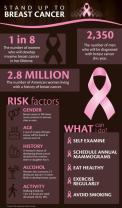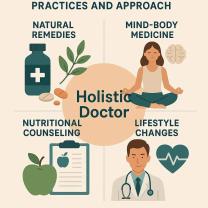How to stop nosebleeds permanently?
While it may be challenging to stop nosebleeds permanently, you can take steps to reduce their frequency and severity by addressing the underlying causes and practicing preventive measures. Here are some strategies to help minimize the occurrence of nosebleeds:
Humidify the Air: Dry indoor air, especially during the winter months or in arid climates, can dry out the nasal passages, making them more prone to bleeding. Use a humidifier to add moisture to the air in your home.
Nasal Saline Sprays: Regularly using saline nasal sprays can help keep the nasal passages moist, reducing the risk of nosebleeds.
Apply Nasal Moisturizers: Petroleum jelly or saline-based nasal gels can be applied gently inside your nostrils to keep the nasal lining from drying out. Use these products sparingly and consult a healthcare professional for guidance.
Avoid Nasal Irritation: Refrain from picking your nose or inserting foreign objects into your nostrils. These actions can damage the delicate blood vessels in your nasal passages.
Use a Humidifier in the Bedroom: Dry air in your bedroom can contribute to nighttime nosebleeds. Using a humidifier in your sleeping area can help maintain the moisture level in your nasal passages.
Protect Your Nose from Trauma: Be cautious when engaging in activities that could result in nasal trauma, such as contact sports. Use protective gear, like helmets, when necessary.
Stay Hydrated: Drinking enough water helps maintain overall hydration, including the moisture in your nasal passages. Aim to stay well-hydrated throughout the day.
Avoid Allergens: If you have allergies, allergens can irritate the nasal passages and increase the risk of nosebleeds. Identify and manage your allergies through medication or other means with the guidance of a healthcare professional.
Avoid Dry Environments: If possible, avoid spending extended periods of time in extremely dry or arid environments, as these conditions can exacerbate nasal dryness.
Consult a Healthcare Professional: If you experience recurrent or severe nosebleeds, it's essential to consult with an ear, nose, and throat (ENT) specialist or a healthcare professional who can evaluate your condition and provide appropriate treatment or interventions. They may recommend cauterization, which is a procedure to seal off problematic blood vessels in the nose.
Remember that nosebleeds can sometimes be a symptom of an underlying medical condition, such as bleeding disorders, hypertension, or structural abnormalities in the nose. Therefore, it's crucial to seek professional medical advice if you continue to experience frequent or severe nosebleeds despite taking preventive measures. Your healthcare provider can help identify and address any underlying causes.
Preventing Nosebleeds: Strategies for Long-Term Relief
There are a number of things you can do to prevent nosebleeds, including:
- Keep the inside of your nose moist. Dry nasal membranes can cause nosebleeds. To keep the inside of your nose moist, use a saline nasal spray several times a day or try putting a thin layer of petroleum jelly in your nostrils three times a day, including before you go to sleep.
- Use a humidifier. Your nostrils might be dry because the air in your house is dry. Using a humidifier can help to add moisture to the air and reduce the risk of nosebleeds.
- Avoid picking your nose. Picking your nose can damage the blood vessels in your nose and lead to nosebleeds.
- Avoid blowing your nose too hard. Blowing your nose too hard can also damage the blood vessels in your nose and cause nosebleeds.
- Avoid smoking. Smoking can irritate the inside of your nose and dry it out, which can increase your risk of nosebleeds.
- Treat any allergies or sinus infections. Allergies and sinus infections can cause inflammation in the nose, which can lead to nosebleeds.
Say Goodbye to Nosebleeds: Permanent Solutions and Tips
If you have chronic nosebleeds, there are a number of permanent solutions that may be available to you, including:
- Cauterization: Cauterization is a procedure that uses heat or chemicals to seal the blood vessels in the nose. This can be an effective treatment for chronic nosebleeds.
- Nasal packing: Nasal packing is a procedure that involves placing a packing material in the nose to stop bleeding. This is typically a temporary measure, but it can be used to stop severe bleeding or to control bleeding after cauterization.
- Surgery: In rare cases, surgery may be necessary to treat chronic nosebleeds. Surgery may involve removing a blood vessel or repairing a damaged blood vessel.
Chronic Nosebleeds? Here's How to Stop Them for Good
If you have chronic nosebleeds, it is important to see a doctor to rule out any underlying medical conditions. Once any underlying medical conditions have been treated, your doctor can discuss the best treatment options for you.
If you are considering a permanent solution for chronic nosebleeds, it is important to weigh the risks and benefits of each option carefully. Talk to your doctor about the best option for you based on your individual medical history and needs.












